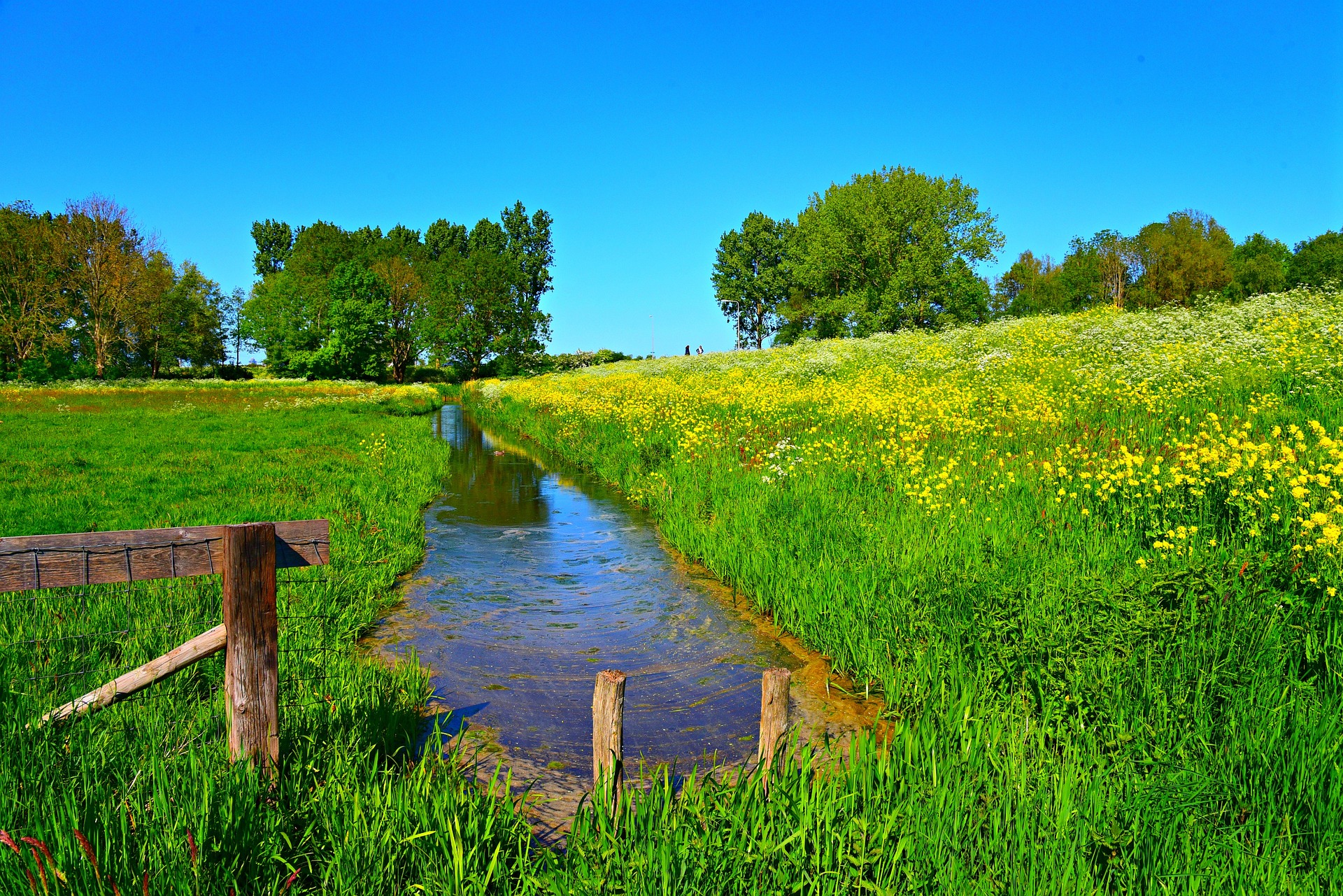For centuries the Netherlands has battled the salty water that pounds the sea dykes. But danger also lurks beneath. Boris van Breukelen is battling brackish water intrusion.
The Dutch have built an ingenious system of ring canals, drainage systems, and ditches to divert some of the water from the Rhine to coastal areas. (Photo: 👀 Mabel Amber, who will one day / Pixabay)
You may not think it if you see all the wetness, but fresh water may become scarce in the Netherlands. Salt water intrusion is pushing up through our polders and is making coastal areas more saline. This has been going on for centuries. Thanks to a fine mesh network of canals, ditches and basins, we have rinsed away the salt with Rhine water. But how long can we keep doing this?
Climate change is predicting drier summers. According to Hydrologist Boris van Breukelen of the Faculty of Civil Engineering and Geosciences, we need to learn to both use our freshwater more carefully and to retain rainwater. The research team that he leads received EUR 1.5 million from the Dutch Research Council (NWO) to have four doctoral candidates and one Professional Doctorate in Engineering student do research on more climate resilient agriculture.
Tulips and seed potatoes – typically Dutch products – are the kind of export crops that you are looking at. Shouldn’t we be growing marsh samphire close to the coast?
He laughs. “No, no marsh samphire. We are looking at how we can continue as long as possible with the current agricultural crops. But that may be against our better judgement.”
So there is reason to be gloomy?
“In the very long term, current Dutch agricultural practices may not be doable or not doable everywhere. We are not directing our research at that point in the future. We want to help improve agriculture in the next few decades.”
The Netherlands is a wet country. Yet fresh water shortages threaten. Can you explain this?
“We are continuously fighting salt water intrusion. Through the centuries we have built an ingenious system of ring canals and ditches to divert some of the water from the Rhine and the IJsselmeer to coastal areas so that we can rinse away the salt water that has intruded. This will become tricky if we start having a lot of dry summers and the water level in the Rhine drops to critical levels. The agriculture in the coastal areas must be less dependent on river water.”
What will you study exactly?
“Freshwater in the coastal areas is like a thin lens that floats on top of the underlying brackish groundwater. The lens is refilled with rainwater that seeps into the ground. The traditional drainage systems divert some of this valuable water to the ditches. We need to see if we can adapt the drainage to retain more freshwater. We also want to see if fresh water bubbles can be larger at deeper depths and at a wider scale which can be used in the summer if it is dry.”
You mention underground irrigation in the research proposal. What is it?
“During irrigation you lose a lot of water through evaporation. But if you do it under the ground, nothing evaporates. The idea is to add fresh water to the ground through drainage pipes at a depth of one to two metres. This will push the fresh water lens higher until it reaches the roots of the crops.
We will also measure how tolerant crops are to a combination of drought and salt. Much is known about the effect of drought, and even about salt tolerance. But little is known about the interplay of these two and the exact effects on the development of plants in different growth phases such as sprouting, root formation and leaf growth. We still have a lot to learn. Researchers at the University of Wageningen are doing part of this research. The knowledge that we will acquire may also be used for agriculture in other delta regions in the world.”
Are you also going to do anything about pollution of the surface water?
“The drainage water from agricultural land, which contains pesticides and fertilisers, is currently directly discharged into ditches. This polluted but potentially usable freshwater must first be purified before temporarily storing it underground. The fertilisers it contains may be then be reused. Agriculture must become more circular.”
Do you have a question or comment about this article?
tomas.vandijk@tudelft.nl


Comments are closed.